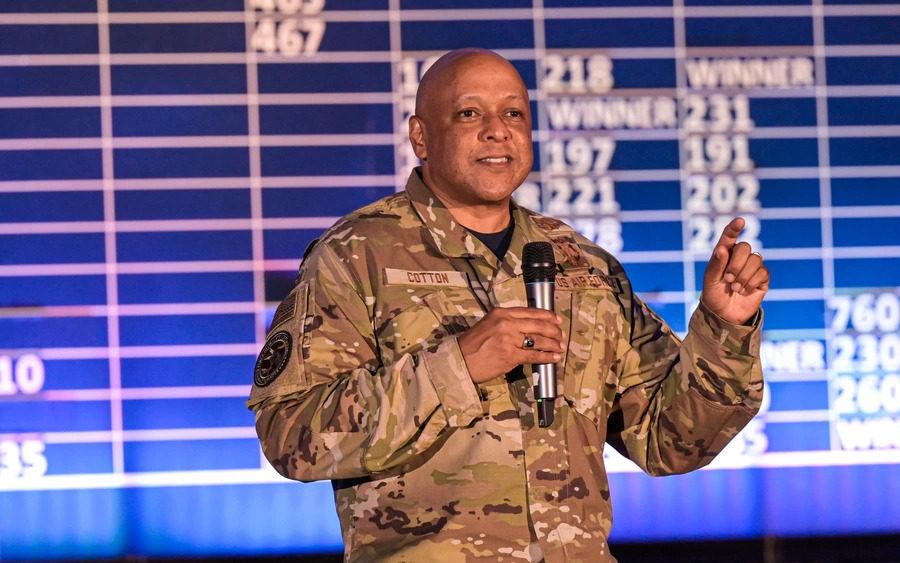The head of U.S. Strategic Command has no interest in replicating the plot of the 1983 film “WarGames.”
Put another way, Gen. Anthony J. Cotton wants to use artificial intelligence to more efficiently process vast amounts of data related to America’s nuclear weapons. But what to do with those weapons will remain a human-made decision, he said Nov. 19 at the Center for Strategic and International Studies.
In “WarGames,” an artificial intelligence program called WOPR—pronounced “Whopper”—located at Cheyenne Mountain Complex, Colo., controls U.S. nuclear weapons.
“WarGames, it has this machine called the WOPR,” Cotton said. “So the WOPR actually was that AI machine that everyone is scared about. And guess what? We do not have a WOPR in STRATCOM headquarters. Nor would we ever have a WOPR in STRATCOM headquarters.”
Cotton’s comments come just a few days after U.S. President Joe Biden and Chinese president Xi Jinping met in Peru and agreed on “the need to maintain human control over the decision to use nuclear weapons,” according to a White House readout.
Last month, Cotton said at the 2024 Department of Defense Intelligence Information System Conference that “AI will enhance our decision-making capabilities. … But we must never allow artificial intelligence to make those decisions for us.”
Those remarks generated headlines and drew some pushback on social media, but Cotton said he was misinterpreted.
“When I spoke last month, that got some feedback like, ‘Oh my god … Cotton just wants AI to make the decision to go nuclear.’ That’s absolutely not what I said,” he said.
In fact, Cotton emphasized at the time that “advanced systems can inform us faster and more efficiently, but we must always maintain a human decision in the loop to maximize the adoption of these capabilities.”
At the CSIS event, he once again argued that AI can play a role for Strategic Command, by helping humans sort through the “terabytes of data that would otherwise hit the floor.” One example is intelligence, surveillance, and reconnaissance (ISR) information.
“How do I get and become efficient on ISR products?” Cotton asked. “How do I get efficient on understanding what’s the status of my forces? … AI and machine learning can absolutely help us with those things and really shave a lot of time off.”
Ultimately, Cotton wants to use AI so that he can provide the president with options in a matter of minutes, not hours—something that might not be possible without AI as more data streams become available.
Still, he noted that extra caution is warranted when it comes to AI in STRATCOM.
“I do not take it lightly that what I’m responsible for is a little different than what other combatant commanders are responsible for,” he said. “I absolutely take it incredibly seriously, and so do the men and women of my team, understanding that we’re responsible for crown jewels of this nation.”
